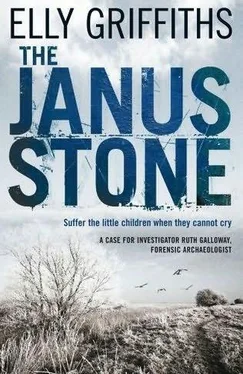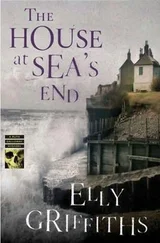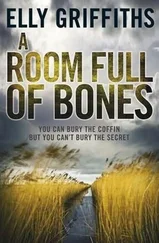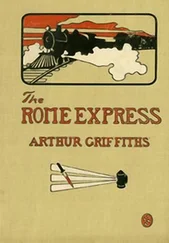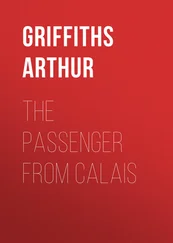‘Is it… she… yours?’
‘No, she belongs to a friend who lives near here. When he heard I was coming to Norfolk for the summer, he offered me the boat as my base. It’s an ex-hire boat, a bathtub they call them round here. Very handy for getting through low bridges.’
The boat is very small but Ruth is fascinated by the evidence of Max’s life on board. Below deck is a stove with something delicious-smelling simmering in a saucepan, and ropes of herbs and garlic hang from the ceiling. Opposite is a bench seat and a narrow table. At the pointed end (the prow?) there is a bed piled high with cushions. Ruth notices a dry-looking classical book on the bedside table and, more surprisingly, a stuffed toy on the pillow. Perhaps Max is not as assured and grown-up as he seems. Over the bed are windows which must open out onto the front of the boat. There is also a shower and a tiny loo which, to Ruth’s embarrassment, she has to use.
They sit on deck drinking wine (in Ruth’s case very slowly) and talking about Max’s dig.
‘I think it’s going to be important. It’s a significant site. Several buildings grouped around a temple. Could be a vicus.’
‘Vicus?’ Ruth feels she should know this word.
‘A small settlement, usually near a military site. A garrison town, really.’
‘Have you found any more skeletons?’ asks Ruth.
‘No. Some more pottery. A few coins. Some other metal pieces, possibly from a game. A signet ring with seal.’
‘That reminds me.’ Ruth tells him about the ring found on the Norwich site. Max is silent for a minute, pouring more wine. ‘Sounds like Hecate. Were they human heads?’
‘I think so.’
‘Because sometimes Hecate is depicted with three animal faces; a snake, a horse and a boar.’
‘They looked human to me.’
‘Is there any other evidence of a Roman settlement on the site?’
‘Not yet but we found some pottery. Samian ware.’
‘Really?’ Max looks genuinely interested.
‘Why don’t you come and have a look one day?’
‘I will.’ He disappears below to check on the food which, when it appears, is absolutely delicious – chicken in red wine, saffron rice, green salad.
‘You really can cook,’ says Ruth, smiling.
‘I like to cook but… living on my own…’ There is a small, charged silence.
‘Have you always lived on your own?’ asks Ruth, aware that it is a rather personal question.
But Max answers easily. ‘I lived with a girlfriend for a while but we split up, amicably enough. Now I think it would be hard to go back to living with someone. You get used to your own space. What about you?’
‘I lived with a boyfriend for a few years. When we split up I remember being quite relieved to have the house to myself. I guess I’m just not cut out for living with someone.’
‘Do you have a boyfriend now?’
‘No.’ Ruth knows that now is the time to tell Max that while she doesn’t have a boyfriend, she does have another, rather permanent, commitment. She hesitates, trying to find the words.
‘Ruth,’ Max reaches out to touch her hand.
‘I’m pregnant,’ Ruth blurts out.
‘What?’ Max sits back. It is dark now and Ruth can’t see the expression on his face. She takes a deep breath.
‘I’m pregnant. I’m not with the father. It’s complicated.’
‘Wow, Ruth…’ Max seems completely at a loss. Ruth eats a last piece of chicken and instantly feels ashamed to be thinking about food in the middle of such an important declaration. It’s very good though.
‘I don’t know what to say,’ says Max at last.
‘It’s OK,’ says Ruth through chicken. ‘You don’t have to say anything. I just thought you ought to know, that’s all.’
‘When’s the baby due?’
‘November.’
‘I’ve got cheese for afterwards,’ Max says suddenly, ‘soft cheese. You’d better not have any. It’s not good when you’re pregnant is it?’
Ruth laughs, touched that he is thinking of her welfare, relieved to have got the announcement over with. ‘I’m full up anyhow.’
‘I’ve made chocolate brownies.’
‘Although I do have a space for chocolate brownies.’
Over the brownies, Max tells Ruth that one of the reasons he split up with his girlfriend was that he wanted children and she didn’t.
‘I never wanted children,’ Ruth says, ‘or I thought I didn’t.I was quite happy with my cats. But then, when I got pregnant, accidentally, I was surprised how delighted I felt. Suddenly I wanted this baby more than anything.’
‘It must feel amazing,’ Max laughs, rather embarrassed. ‘Sounds weird I know but I’ve always envied women for being able to get pregnant. Must be incredible to have all that going on inside you.’
‘Yes and you can eat without worrying about getting fat.’
‘Another brownie?’
‘Thanks.’
‘It’s scary though too,’ Ruth continues, after a pause. ‘I don’t know enough about babies or anything. I’m… estranged from my mother. None of my friends have babies.’
This isn’t quite true. Some of Ruth’s friends from school and university have had babies, most of whom are children or even teenagers now. It’s just that, as soon as they had children, an invisible wall seemed to appear between them and their childless friends. Ruth could turn up at the hospital with flowers and balloons (‘It’s a girl!’), she could remember birthdays and Christmas, but she was forever outside that charmed circle of motherhood. Gradually, those friendships faded and died.
‘And the father…?’
‘He doesn’t know.’
‘Oh.’ Ruth hears disapproval in the monosyllable. Of course, Max wants children. He would identify with the unknown father, will accuse her of abusing father’s rights and other newly invented crimes. In fact he’s probably about to jump on the roof dressed as Superman.
‘I will tell him,’ she says, ‘it’s just… he’s married.’
‘Oh.’ A different sound, more understanding, perhaps even sympathetic. ‘You can talk to me,’ he says, ‘I don’t know anything about babies, but you can talk to me.’
‘Thank you.’
The silence, a companionable one this time, is broken by Ruth’s mobile ringing. She snatches it up, meaning to turn it off, but then she sees the caller display. ‘Debbie Lewis.’
‘Excuse me,’ she says, ‘I’d better take this call.’
Nelson is at home, reading through some of the results of Clough’s sulky trawl through the files. Nelson doesn’t usually bring work home (at the outset of their marriage he promised Michelle he wouldn’t and, by and large, he has kept his word). But he is keen to point the case in a new direction. If Clough has found any useful leads on the children… but it seems that he hasn’t.
He has birth certificates for Martin and Elizabeth: mother Louise Black, née Maxwell; father Daniel Black. He has a death certificate for Louise Black dated 1970 and, in 1998, a death certificate for Daniel Black. If, as Nelson suspects, Daniel Black knew more about his children’s disappearance than he admitted, it is too late to talk to him.
He also has statements from other employees at the Sacred Heart Children’s Home – cleaners, gardeners, health visitors, someone calling themselves a Play Specialist. All these statements, without exception, attest to the saintliness of Father Hennessey and the high standard of care in the home. One of the gardeners describes Martin Black as ‘trouble’ but this could have been linked to his habit of digging holes in the lawn. The Health Visitor says Elizabeth was prone to colds and sore throats but was otherwise healthy; Martin was ‘as strong as a horse’.
Clough has also tracked down a distant cousin living in Ireland but, as she hasn’t seen Martin since 1963 and has never set eyes on Elizabeth, this contact is of little use.
Читать дальше
